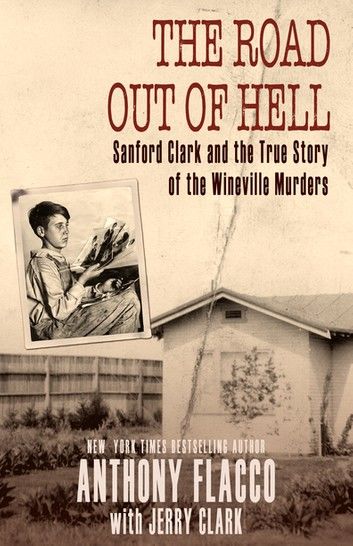| FindBook |
有 1 項符合
The Road Out of Hell的圖書 |
 |
The Road Out of Hell 作者:Anthony Flacco,Jerry Clark 出版社:Diversion Books 出版日期:2013-11-02 語言:英文 |
| 圖書館借閱 |
| 國家圖書館 | 全國圖書書目資訊網 | 國立公共資訊圖書館 | 電子書服務平台 | MetaCat 跨館整合查詢 |
| 臺北市立圖書館 | 新北市立圖書館 | 基隆市公共圖書館 | 桃園市立圖書館 | 新竹縣公共圖書館 |
| 苗栗縣立圖書館 | 臺中市立圖書館 | 彰化縣公共圖書館 | 南投縣文化局 | 雲林縣公共圖書館 |
| 嘉義縣圖書館 | 臺南市立圖書館 | 高雄市立圖書館 | 屏東縣公共圖書館 | 宜蘭縣公共圖書館 |
| 花蓮縣文化局 | 臺東縣文化處 |
|
|
圖書介紹 - 資料來源:樂天KOBO 評分:
圖書名稱:The Road Out of Hell
"And you wonder: How the hell did this guy go on to be a loving father and grandfather? How did he bury all that crap? That's a story in itself." —Clint Eastwood, director of THE CHANGELING
The film story of young Sanford Clark and his forced participation in the Wineville Murders was covered in Clint Eastwood's movie, THE CHANGELING, but for answers to the questions Eastwood posed after completing the project, turn to the true story of the Wineville murders: Anthony Flacco's THE ROAD OUT OF HELL. The hell part isn't what makes the story important; it's the road out that does.
From 1926 to 1928, Gordon Stewart Northcott committed at least 20 murders on a chicken ranch outside of Los Angeles. His nephew, Sanford Clark, was held captive there from the age of 13 to 15, and was the sole surviving victim of the killing spree. Here, acclaimed crime writer Anthony Flacco—using never-before-heard information from Sanford’s son, Jerry Clark—tells the real story behind the case that riveted the nation.
Forced by Northcott to take part in the murders, Sanford carried tremendous guilt all his life. Yet despite his youth and the trauma, he helped gain some justice for the dead and their families by testifying at Northcott’s trial—which led to his conviction and execution. It was a shocking story, but perhaps the most shocking part of all is the extraordinarily ordinary life Clark went on to live as a decorated WWII vet, a devoted husband of 55 years, a loving father, and a productive citizen.
In dramatizing one of the darkest cases in American crime, Flacco constructs a riveting psychological drama about how Sanford was able to detoxify himself from the evil he’d encountered, offering the ultimately redemptive story of one man’s remarkable ability to survive a nightmare and emerge intact.
The film story of young Sanford Clark and his forced participation in the Wineville Murders was covered in Clint Eastwood's movie, THE CHANGELING, but for answers to the questions Eastwood posed after completing the project, turn to the true story of the Wineville murders: Anthony Flacco's THE ROAD OUT OF HELL. The hell part isn't what makes the story important; it's the road out that does.
From 1926 to 1928, Gordon Stewart Northcott committed at least 20 murders on a chicken ranch outside of Los Angeles. His nephew, Sanford Clark, was held captive there from the age of 13 to 15, and was the sole surviving victim of the killing spree. Here, acclaimed crime writer Anthony Flacco—using never-before-heard information from Sanford’s son, Jerry Clark—tells the real story behind the case that riveted the nation.
Forced by Northcott to take part in the murders, Sanford carried tremendous guilt all his life. Yet despite his youth and the trauma, he helped gain some justice for the dead and their families by testifying at Northcott’s trial—which led to his conviction and execution. It was a shocking story, but perhaps the most shocking part of all is the extraordinarily ordinary life Clark went on to live as a decorated WWII vet, a devoted husband of 55 years, a loving father, and a productive citizen.
In dramatizing one of the darkest cases in American crime, Flacco constructs a riveting psychological drama about how Sanford was able to detoxify himself from the evil he’d encountered, offering the ultimately redemptive story of one man’s remarkable ability to survive a nightmare and emerge intact.
|










